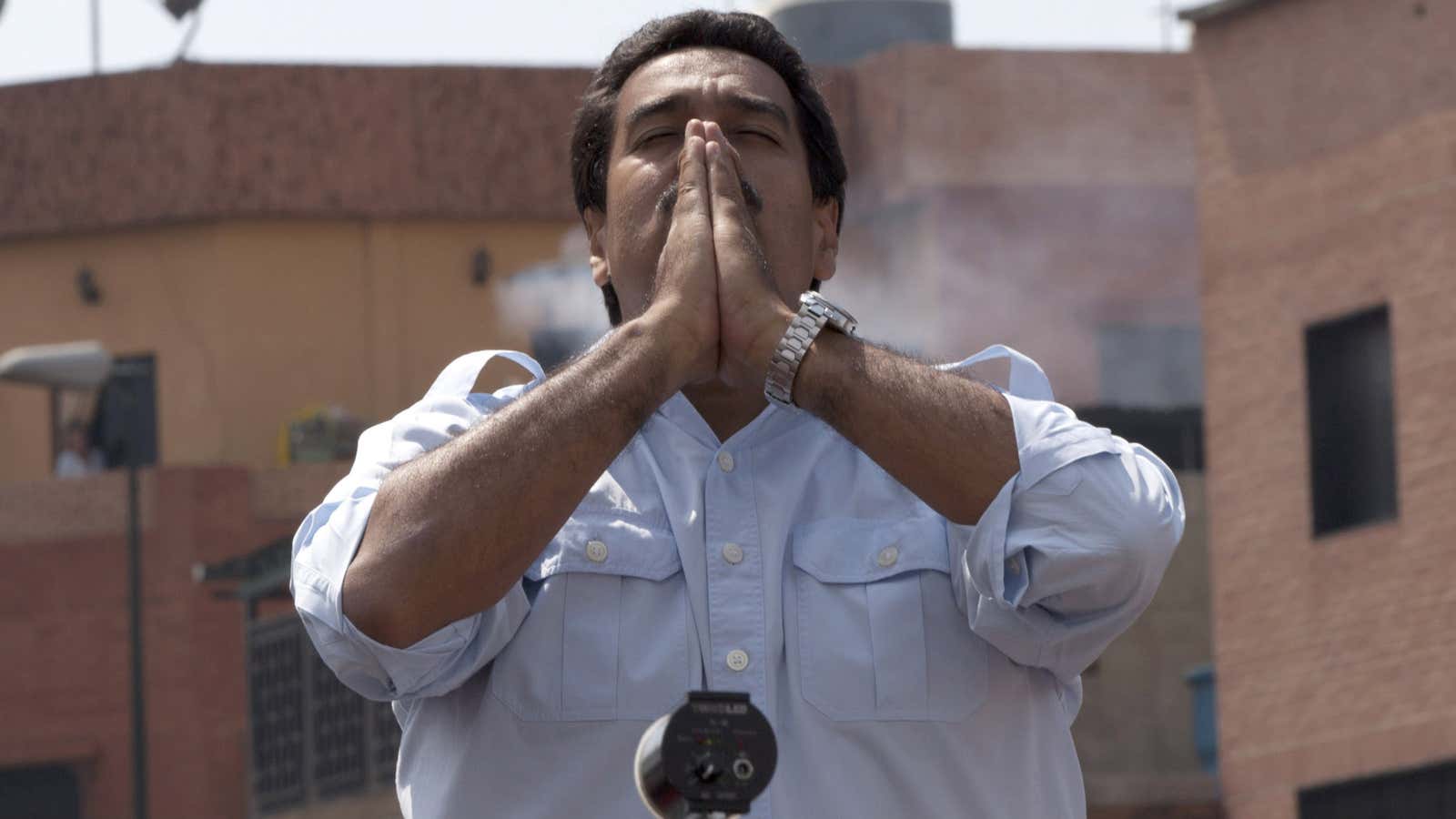Acting president and Chavez successor Nicolas Maduro surprised observers by winning Sunday’s presidential election by a narrow margin, despite enjoying a much larger advantage in pre-election polling. Maduro won 50.6% of the vote, while opposition candidate Henrique Capriles Radonski obtained 49.07% of the vote. The often fractured opposition emerged from the election strengthened, while Maduro will begin his presidency in a weak position. In fact, his mediocre victory represents the worst possible outcome for economic policy and political stability.
Capriles is challenging the results and demanding a full recount, but ultimately, Maduro will likely be declared president. Capriles’s likely strategy is to undermine Maduro’s legitimacy without generating a political crisis, and the government will be hesitant to allow any challenge to the Maduro’s victory. While this process could generate some uncertainty, nearly half of the electorate voted for Maduro, and he controls the state institutions, which should work in his favor.
Still, Maduro will begin his mandate with limited legitimacy and in a weak political position. The chavistas enjoyed an enormous advantage in this campaign given their control of media, state institutions, and immense fiscal resources, so Maduro’s narrow win reflects very poorly on his political strength. Not only will Maduro face a more decisive opposition, but he will also face strong internal opposition from within chavismo. Lacking a real base of support, he will struggle to manage internal disputes, especially as social discontent rises in a deteriorating economic environment.
Further complicating matters, Maduro begins his presidency in a very difficult economic context. The economy is plagued by sluggish economic growth (0.9% in 2013 according to local consultancy Ecoanalitica), high inflation (25% year-over-year in March), dollar and goods scarcity, stagnant oil production, and fiscal accounts that are in disarray. In this context, Maduro will struggle to recover popularity.
Consequently, economic policy and political stability will likely suffer. Maduro will be an inherently weak president, and will be under pressure to reverse social discontent, which means he is unlikely to make needed economic adjustments. This means that foreign exchange and price controls will likely remain in place, and demands on state-run oil company PDVSA for financing will remain high, limiting the firm’s investment capacity. Moreover, Maduro will be constrained in his ability to implement more pragmatic policies, as he will need to prove his revolutionary credentials in order to legitimize his role as heir to Chavez. In this context, Maduro will likely attempt to rally his support base by finding common enemies. This means he will probably have to take some tough actions, especially towards the private sector, such as further nationalizations or more stringent controls.
In this context, political dynamics will likely deteriorate further, and rapidly, which will also worsen economic conditions, increasing the risk of political instability.
